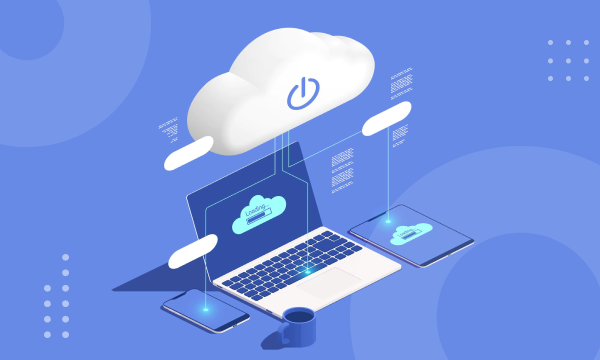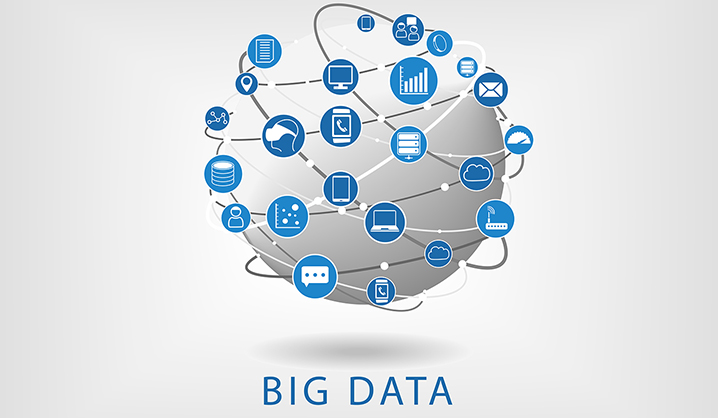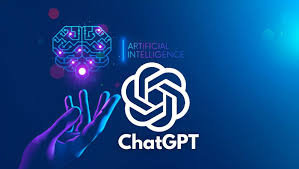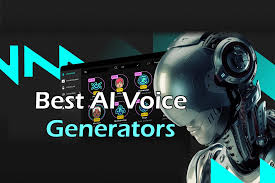Best Cloud Computing Service Providers: Top 10 for 2025

Selecting the right cloud computing service provider can make or break your digital transformation. Whether you need scalable infrastructure, enterprise SaaS, or fully managed cloud operations, hundreds of options flood the market. In this guide, we present the top 10 cloud computing service providers—from hyperscalers like AWS, Azure, and GCP to specialized regional champions and managed-service experts.
We’ll highlight each provider’s strengths, features, and drawbacks, then walk you through the key factors to consider so you can confidently choose your ideal partner. Ready to accelerate your journey to the cloud? Let’s dive in!
Top 10 Cloud Computing Service Providers for Your Option
You’ve seen why leading providers like AWS, Azure, and GCP dominate the cloud landscape. Next, we’ll explore our top ten picks—each evaluated for service breadth, global reach, and managed-service excellence—so you can pinpoint the ideal cloud computing service provider for your organization.
1. Amazon Web Services (AWS)
As the market leader, AWS offers over 200 services—including EC2 (compute), S3 (storage), and RDS (databases)—with global availability across 26 regions and 84 Availability Zones.
Features:
-
IaaS, PaaS, SaaS, AI/ML, serverless, edge computing
-
Advanced DevOps and container support (EKS, ECS)
-
Marketplace with 7,000+ software listings
Pros & Cons:
-
Pros: Unmatched service breadth; global footprint; mature ecosystem
-
Cons: Complex pricing; steep learning curve for novices
2. Microsoft Azure
Azure excels in hybrid-cloud scenarios, integrating on-premises Windows Server and SQL Server environments with cloud services like Virtual Machines and Azure Arc.
Features:
-
Over 200 services: IaaS, PaaS, AI, IoT, and edge
-
Azure Active Directory for identity and access management
-
Strong integration with Microsoft 365 and Dynamics 365
Pros & Cons:
-
Pros: Seamless hybrid capabilities; extensive compliance certifications
-
Cons: Occasional service inconsistencies; complex licensing
3. Google Cloud Platform (GCP)
GCP is renowned for data analytics and machine learning services—BigQuery, TensorFlow, and Vertex AI—backed by Google’s global fiber network and security infrastructure.
Features:
-
BigQuery (serverless data warehouse), Cloud Spanner (globally distributed DB)
-
Anthos for multi-cloud Kubernetes management
-
Preemptible VMs for cost-savings
Pros & Cons:
-
Pros: Leading AI/ML tools; competitive pricing; strong network performance
-
Cons: Smaller market share; limited enterprise partner ecosystem
4. IBM Cloud
IBM Cloud targets enterprise clients with hybrid-cloud via Red Hat OpenShift, mainframe rehosting, and specialized managed services (e.g., SAP on Cloud).
Features:
-
IBM Cloud Satellite for on-prem/cloud consistency
-
Watson AI, blockchain, and quantum computing services
-
VMware-based private cloud options
Pros & Cons:
-
Pros: Strong hybrid and industry solutions; robust support for legacy workloads
-
Cons: Smaller global footprint; higher price points for niche services
5. Oracle Cloud Infrastructure (OCI)
OCI offers performance-optimized compute and database services—especially for Oracle Database customers—alongside a growing DevOps toolchain and autonomous services.
Features:
-
Autonomous Database and Exadata Cloud Service
-
Bare metal and GPU instances for high-performance workloads
-
Integrated security and identity services
Pros & Cons:
-
Pros: Optimized for Oracle apps; predictable pricing
-
Cons: Smaller service catalog; limited third-party integrations
6. Alibaba Cloud
Alibaba Cloud leads in the Asia-Pacific region, offering elastic compute, storage, and AI services with strong support for regional compliance and e-commerce workloads.
Features:
-
ECS (Elastic Compute Service), OSS (Object Storage Service)
-
MaxCompute for big data processing
-
Anti-DDoS and WAF for security
Pros & Cons:
-
Pros: Competitive APAC pricing; local compliance expertise
-
Cons: Weaker global presence; English-language support gaps
7. Salesforce (Heroku & Tableau)
Salesforce’s cloud portfolio—Heroku for PaaS and Tableau Cloud for analytics—caters to developers and business analysts seeking rapid application deployment and data visualization.
Features:
-
Heroku Dynos for app hosting; managed PostgreSQL
-
Tableau Cloud for self-service BI
-
Seamless Salesforce CRM integration
Pros & Cons:
-
Pros: Developer-friendly; powerful analytics; tight CRM integration
-
Cons: Higher costs at scale; limited low-level infrastructure control
8. VMware Cloud
VMware Cloud on AWS, Azure, and Google Cloud delivers native VMware environments in public clouds—ideal for lift-and-shift migrations and consistent hybrid operations.
Features:
-
vSphere, NSX, vSAN in public cloud
-
VMware HCX for workload mobility
-
Centralized management with vCenter
Pros & Cons:
-
Pros: Familiar VMware tools; seamless migrations; hybrid consistency
-
Cons: Premium pricing; limited to partner clouds
9. CoreWeave
CoreWeave specializes in GPU-accelerated cloud compute for AI, rendering, and scientific simulations, backed by rapid provisioning and NVIDIA A100/H100 instances.
Features:
-
GPU-optimized VMs; high-performance networking
-
Pay-as-you-go and reserved pricing
-
Support for CUDA, TensorFlow, PyTorch
Pros & Cons:
-
Pros: Leading GPU performance; flexible billing; hands-on support
-
Cons: Niche focus; fewer general-purpose services
10. OVHcloud
OVHcloud offers European-hosted IaaS, bare-metal servers, and private cloud with strong data-sovereignty guarantees—catering to GDPR-regulated industries.
Features:
-
Bare metal, Public Cloud (VMs)
-
Kubernetes Service and vRack networking
-
DDoS protection at no extra cost
Pros & Cons:
-
Pros: Competitive EU pricing; data sovereignty; free DDoS
-
Cons: Limited global reach; smaller ecosystem
To assist you in evaluating and selecting the most suitable cloud computing service provider for your organization's needs, the following comprehensive comparison table summarizes key aspects of the top 10 providers:
| Name | Core Features | Pros & Cons | Best For |
| AWS | - 200+ services (EC2, S3, RDS) - 26 regions, 84 AZs - AI/ML, serverless, edge - EKS/ECS for containers |
✅ Unmatched breadth, global reach ❌ Complex pricing, steep learning curve |
Enterprises needing scalability |
| Microsoft Azure | - Hybrid cloud (Azure Arc) - 200+ services - Azure AD, M365/Dynamics integration - Strong compliance |
✅ Seamless hybrid, enterprise integration ❌ Licensing complexity |
Windows-centric organizations |
| Google Cloud (GCP) | - BigQuery, Vertex AI - Anthos multi-cloud - Global fiber network - Preemptible VMs |
✅ AI/ML leadership, competitive pricing ❌ Smaller ecosystem |
Data analytics/AI workloads |
| IBM Cloud | - Red Hat OpenShift hybrid - Watson AI, quantum - Mainframe/legacy support - VMware private cloud |
✅ Legacy workload support ❌ Higher niche pricing |
Regulated industries, IBM shops |
| Oracle Cloud (OCI) | - Autonomous Database - Bare metal/GPU instances - Oracle app optimization - Predictable pricing |
✅ Oracle DB performance ❌ Limited third-party integrations |
Oracle application users |
| Alibaba Cloud | - ECS, OSS, MaxCompute - APAC-focused - Anti-DDoS/WAF - Local compliance |
✅ APAC cost advantage ❌ Weak global support |
Asian market expansion |
| Salesforce | - Heroku PaaS - Tableau Cloud BI - CRM integration - Managed PostgreSQL |
✅ Rapid deployment, analytics ❌ Expensive at scale |
CRM-centric businesses |
| VMware Cloud | - vSphere/NSX/vSAN in cloud - HCX migration - AWS/Azure/GCP partnerships |
✅ Lift-and-shift simplicity ❌ Premium pricing |
VMware environment migrations |
| CoreWeave | - NVIDIA A100/H100 GPUs - AI/rendering focus - Pay-as-you-go - CUDA/TensorFlow support |
✅ Best GPU performance ❌ Niche use cases |
AI research, VFX rendering |
| OVHcloud | - EU data sovereignty - Bare metal, Kubernetes - Free DDoS protection - vRack networking |
✅ GDPR compliance ❌ Limited global services |
European data privacy requirements |
Key Takeaways:
-
Enterprise Scale: AWS, Azure, GCP
-
Hybrid/Windows: Azure, IBM Cloud
-
AI/Data: GCP, CoreWeave
-
Oracle Workloads: OCI
-
APAC Focus: Alibaba Cloud
-
EU Compliance: OVHcloud
Specialized Providers:
-
AI/GPU: CoreWeave
-
CRM Analytics: Salesforce
-
VMware Migration: VMware Cloud
6 Key Factors to Consider Before Selecting Cloud Computing Service Provider
Before diving into the nitty-gritty of selecting a cloud provider, remember that your choice will directly impact your applications’ performance, uptime, and regulatory compliance. These key factors—from global footprint and availability zones to service breadth and managed-service offerings—form the pillars for your evaluation. Let’s explore what makes certain vendors truly stand out
-
Global Footprint & Availability Zones
More regions/Zones = lower latency and better resilience. Hyperscalers lead here. -
Service Breadth & Depth
Evaluate IaaS, PaaS, SaaS, AI/ML, serverless, and edge offerings. More services simplify vendor consolidation. -
Compliance & Security Certifications
Look for ISO 27001, SOC 2, GDPR, HIPAA—critical for regulated industries. -
Pricing Models & Total Cost of Ownership
Compare pay-as-you-go, reserved instances, and volume discounts. Watch for hidden egress fees. -
Managed Service Capabilities
Fully managed databases, Kubernetes, and AI services reduce operational burden—important for lean teams. -
Ecosystem & Partner Network
Rich marketplaces, third-party integrations, and professional services accelerate deployment and innovation.
Conclusion
From hyperscale giants (AWS, Azure, GCP) to specialized specialists (CoreWeave, OVHcloud), this cloud computing service providers list equips you to choose the right partner. By weighing global reach, service portfolio, compliance, pricing, and managed-service offerings, you can align cloud investments with your technical and business objectives.
Ready to move forward with confidence? Explore free trials or pilot programs today and unlock the full potential of cloud computing! One more word, if you want to enhance data processing efficiency, you must need big data tools. Read on to take the best pick from Starrpicks' review articles.
FAQs
-
What are cloud computing service providers?
They are companies offering on-demand computing resources—servers, storage, databases, networking, software—over the internet, billed as a service.
-
Who are the top cloud computing service providers?
The leading providers by market share and capability are AWS, Microsoft Azure, Google Cloud, IBM Cloud, Oracle Cloud, Alibaba Cloud, and others like CoreWeave and OVHcloud.
-
What is a managed service provider in cloud computing?
MSPs deliver fully managed operations on top of cloud platforms—handling setup, monitoring, patching, backup, and support to reduce your in-house workload.
-
How do I choose a cloud computing services provider?
Evaluate your needs for performance (regions, zones), service breadth (IaaS/PaaS/SaaS), compliance, pricing models, managed services, and partner ecosystem.
-
What is the difference between IaaS and PaaS?
IaaS provides raw infrastructure (VMs, storage, networking); PaaS adds managed runtimes and services (databases, middleware) so you can focus on application development.









